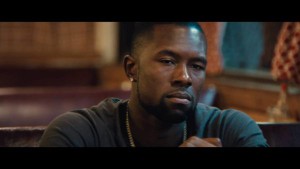An article commissioned by La Repubblica‘s weekly magazine D. in Italy for publication on February 1, 2017. A slight variation of this appeared as one of my columns in Caiman Cuadernos de Cine. — J.R.
I’ve never been adept at predicting the Oscars, and writing this shortly before the nominees are announced puts me at an even greater disadvantage. But the winners of the Golden Globes awards several weeks before the Academy Awards are a good indication of the overall trends in industry thinking. And the tendency in this year’s Golden Globes winners is a preference for ideological and aesthetic prestige over mainstream appeal: Moonlight for best drama, La La Land for best musical or comedy, Isabelle Huppert in Elle and Emma Stone in La La Land for best actress, Casey Affleck in Manchester by the Sea and Ryan Gosling in La La Land. Otherwise, La La Land broke the record for prizes by winning seven in all, including also screenplay and direction (Damien Chazelle) and original score (Justin Hurwitz).
What generalizations can one reach about all four of the aforementioned prizewinners? A preference for gloom and doom over optimism that seems quite appropriate following the recent election of the United States’ own Silvio Berlusconi, Donald J. Trump, as President. Even in the case of a supposedly “feel-good” musical, La La Land, the basic story is one of failed romance and the bittersweet taste of success (already the implicit theme of Chazelle’s previous feature, Whiplash), just as the “happy ending” — if one can call it that — of Moonlight entails the hero’s belated acceptance of his own homosexuality as he continues to support himself as a drug dealer. Furthermore, the complaint made last year about the absence of black people among the Oscar nominees already appears to make Moonlight seem especially Oscar-worthy. Furthermore, the recent denunciation of Trump by Meryl Streep at the Golden Globes ceremony already suggests that the 2017 Oscars will offer the film industry another opportunity to express its anti-Trump sentiments.
Given the peculiar trait in American culture that makes certain topics appropriate for public discussion only if a movie is made about them—so that questions about the John F. Kennedy assassination belatedly made front-page news when Oliver Stone’s JFK was released, and the shameful history of American slavery even more belatedly became a hot topic thanks to Django Unchained (2012) and 12 Years a Slave (2013) — one often feels that the Academy Awards offer opportunities for expressing political sentiments that otherwise remain repressed.
David Mamet has aptly described the Academy Awards as a national holiday, and if one considers that the highest incidence of violence in American occurs during national holidays and between family members, the relevance of the Oscars to repressed political sentiments becomes hard to overlook.
One telling aspect of La La Land is just how desperate its euphoria is. Of course this is true about many of the greatest musicals that characteristically gets overlooked, which is how much the elation of song and dance is only half of a dialectic that also highlights failure, hopelessness, and defeat. The most salient thing about the musical numbers here is how they figure as interruptions to misery and diverse irritations and frustrations — interruptions that are typically interrupted in turn by the hell of a freeway traffic jam or the anguish of a failed audition.
This is what makes the singing and dancing seem psychologically necessary. If the movie’s opening and closing production numbers are by far the most impressive and powerful, this is because they’re both responses to realities perceived as unbearable—which becomes all the more unbearable in the latter case by being disguised as a phony happy ending (like the hysterical happy ending of Frank Capra’s It’s a Wonderful Life). Clearly, in the final analysis, La La Land is far more about the death of cinema and the death of jazz than it is about their rebirth or survival. It’s about boarded-up movie houses, antiquated analog recordings, and artistic aspirations that can only be fulfilled (as well as fueled) by fantasy.



